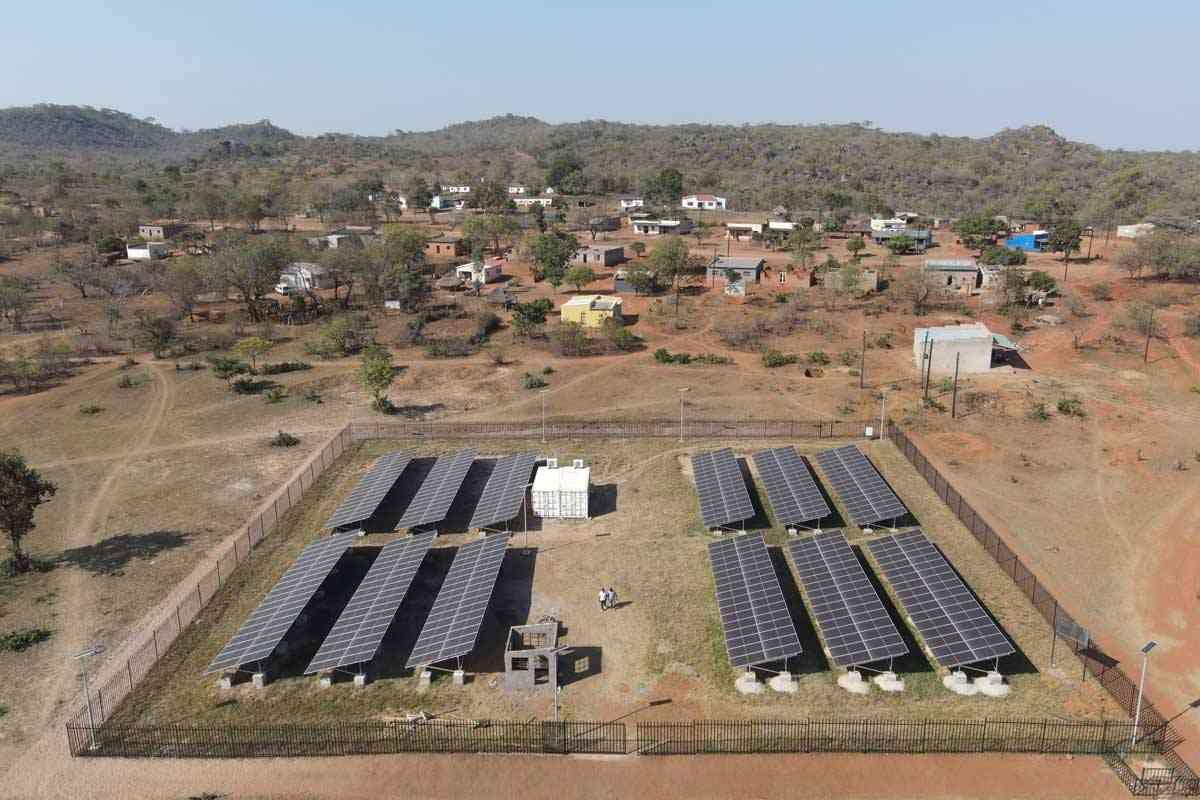Africa-Press – Zimbabwe. A 200kW solar plant commissioned by the government in partnership with the United Nations Development Programme (UNDP) and the Foreign and Commonwealth Development Office has brought hope to Chipinge.
The project, which consists of 90 biogas digesters and 60 solar home systems, is part of the Climate Adaptation, Water and Energy Programme funded by the Foreign and Commonwealth Development Office of the UK and constructed by UNDP.
Situated in the remote area of Chipinge near the Mozambican border, Hakwata village is now the heartbeat of development, spanning from smooth operations at the clinic to the sprouting of village business units and carpentry workshops, among others.
Nurse-in-charge at Hakwata Clinic, Maxwell Chitivala (48) told NewsDay that the introduction of electricity was a huge turn around for the community.
“Our patients are now able to be assisted in a well-lit environment. We now have a waiting mothers’ house. We are now able to report for duty early in the morning without fearing snake bites. Our medicines were also at risk as we had nowhere to store them presenting a huge challenge,” he said.
With the clinic serving as a lifeline for a community distant from the benefits of the modern cities, the struggles of the past are now over.
The constant worry over spoiled medicines has vanished, backed by a medical refrigerator while night-time operations are now safe and illuminated.
“We now have the privilege of using electronic gadgets such as phones and computers to transfer data for accountability purposes,” he said.
For Nyarai Ndlovu (34), a youth beneficiary of the Kugara Hakuna Chimuko village business unit, the solar project has been a blessing, describing it as more than a power source but a lifeline that has transformed the lives of the youths.
“The electricity generated from the solar has been instrumental in making sure we receive enough pumped water to start an irrigation scheme where we grow tomatoes.
“We are now able to produce and sell tomatoes at a commercial level enabling us to be financially stable. Before the grid was established, we were wallowing in self-pity and abject poverty,” she said.
For the school, the joy cannot be matched as vast transformation has been recorded through the establishment of solar-powered floodlights that allow children to read and do their homework during the night.
The school has established a technology laboratory which allows students to smoothly prepare for examinations and help them to be tech-savvy.
Hakwata Primary School energy committee representative, Ushe Gokova, said there had been great improvement with regards to water provision.
“There used to be great commotion as there was only one borehole that serviced the entire community and waterborne diseases were also common. Now our children are able to effectively learn as they no longer spend long hours queuing for water.
“Our welfare has greatly been improved as we are now able to buy electricity gadgets such as refrigerators and get updates from the outside world through DSTV.
“There has been the bridging of the gap between rural communities and urban areas. We are now living in a computer world and it’s important to have knowledge of it.”
For More News And Analysis About Zimbabwe Follow Africa-Press






